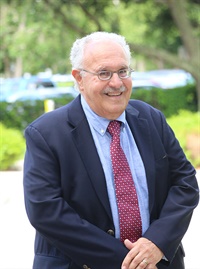Total Credits: 1.5
Tags: forensic psychology
The section of the civil law codes that focus on personal injury litigation make it possible for psychologists to testify as expert witnesses in both liability issues and psychological damages parts of the cases. We will focus on the structure of and language used in a civil PI case, issues that may arise, and the role of the psychologist as an independent evaluator hired by either plaintiff or defense. Protocols for evaluation and report writing in various civil cases such as gender violence, product liability, and malpractice will be discussed. The importance of drawing the nexus between the injury and the resulting damages, including increase in problems already present will be emphasized.
Learning Objectives:
Participants will:
References:
Shapiro, D. & Walker, L. (2019). Forensic practice for the mental health clinician. New York: TPI
Walker, L.E., Shapiro, D.L. & Akl, S. (2020). Introduction to forensic psychology: Clinical & Social Perspectives. Second Ed. New York:Springer Nature
| Basics of Civil and PI Law for Psychologists (1.1 MB) | Available after Purchase | ||

Dr. Lenore Walker is a professor emerita from Nova Southeastern University College of Psychology where she was the Coordinator of the Forensic Psychology program for the doctoral and master's students. Currently she maintains a small independent practice of forensic psychology assisting attorneys representing those who harmed or killed their abusive partners in self-defense or other civil personal injury cases requiring evaluation of client's state of mind during or after experiencing trauma. It was her research on the Battered Woman Syndrome that introduced it into the courts during the 1970’s and she was the expert witness in the Ibn-Tamas case in 1978 where President Biden just pardoned Ms. Beverly Ibn-Tamas. Dr. Walker continues her research on domestic and gender violence with the recent publication of the Survivor Therapy Empowerment Program (STEP) for incarcerated females. Walker has lectured around the world on various issues impacting victim/survivors of interpersonal violence especially using feminist psychology approaches. She has published over 25 books and numerous professional book chapters and journal articles on these topics including four editions of The Battered Woman Syndrome. With her husband, Dr. David Shapiro, they have co-edited (with Dr. Akl) the Introduction to Forensic Psychology, 2nd Edition and the Forensic Practice for the Mental Health Clinician. She has been appointed the Chair of the American Psychological Association Working Group on Professional Practice Guidelines on PTSD and Trauma. Her passion is writing mystery novels and has published “Madness to Murder” on Amazon. She is the 2023 recipient of the APF Gold Medal Award for Impact in Psychology.

David L. Shapiro is a Professor Emeritus of Psychology at Nova Southeastern University. He has been involved in the field of forensic psychology for over fifty years and was one of the founders of the American Board of Forensic Psychology. He has been involved in research, teaching, and training in the forensic area, has published twelve books and approximately fifty peer reviewed articles dealing with the psychology law interface. He has received Distinguished Contribution awards from the American Academy of Forensic Psychology, The California Psychological Association, and from the Division of Independent Practice of the American Psychological Association. He has served on the Ethics Committee of the American Psychological Association, and Chaired the Ethics Committee of the American Board of Professional Psychology.